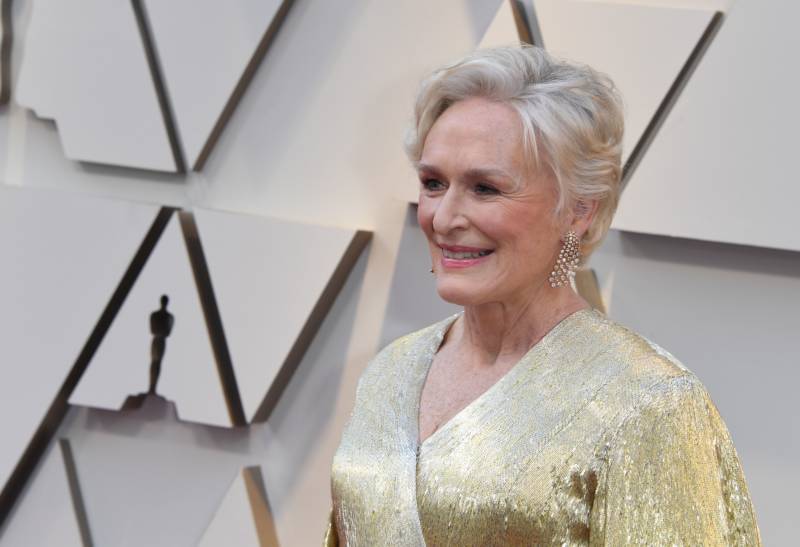Remember the collective sigh of relief that greeted Leonardo DiCaprio's Best Actor Academy Award? Before 2016's Oscars had even started, everyone knew that of course Leo would walk away with a gold statue that year. After all, it had been 22 years since his first nomination and the sixth time he'd been up for one.
So consider the predicament of living cinematic legend, Glenn Close, who has been nominated for an Academy Award seven times over a span of 37 years. (Thirty-freakin'-seven! Some of you have been alive for less!) 2019 really felt that it would finally be her year, thanks to her blistering portrait of Joan Castleman in The Wife, a woman coming to terms with a creative life sacrificed for the benefit of her husband. It wasn't just a perfect performance, it was perfect timing too. (A movie about a woman getting sidelined by a more famous man has #TimesUp written all over it.)
W Magazine's newsletter declared Close's Oscar chances this year as "one of the surest bets of the night," while The New Yorker pointed out:
"The release of The Wife has come with chatter that Close may finally win an Oscar, after being nominated six times. There are several reasons for the Oscar talk, one being that publicists are working hard at it. (The “It’s her turn” narrative is time-tested.) But there’s also a sense that Close, like Joan Castleman, hasn’t been given her proper due."
It wasn't just a matter of PR. The critics adored Close's performance across the board. “One of the richest, most riveting and complicated performances of her career,” raved The Hollywood Reporter. "The veteran actress is a marvel of twisty understatement here, delivering emotions that conceal as much as they reveal, and offering onion-like layers that invite repeat viewings," reported Variety.


